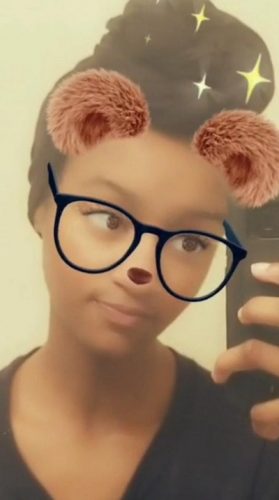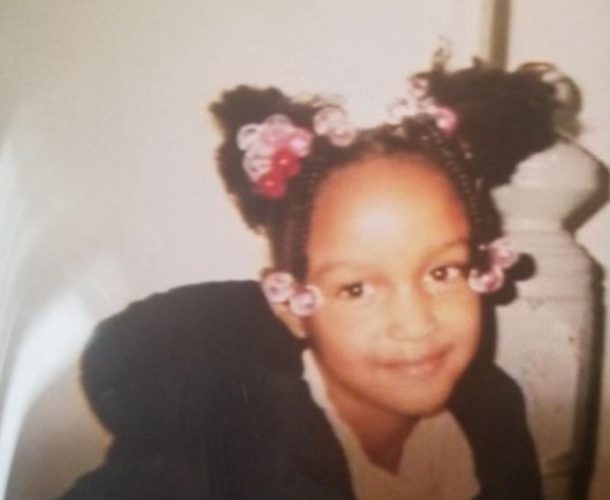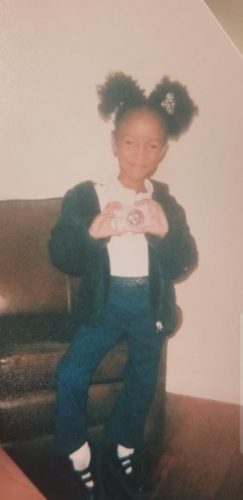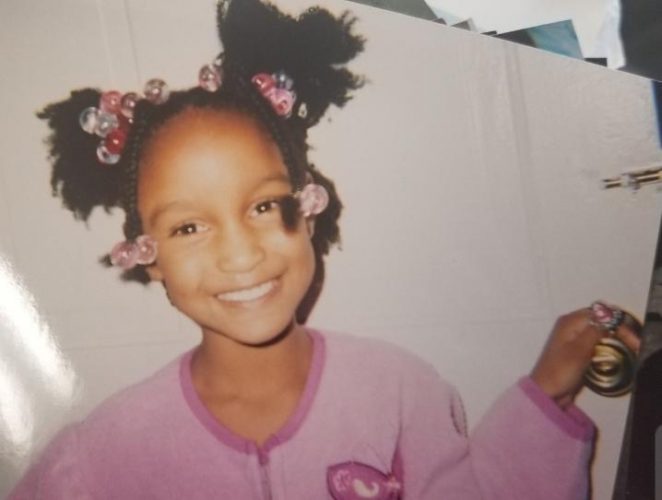 In recognition of Mental Health Month, On the Pulse will be sharing valuable resources and inspiring patient stories each week to guide individuals and families struggling with mental health issues and help destigmatize the topic of mental health in our society.
In recognition of Mental Health Month, On the Pulse will be sharing valuable resources and inspiring patient stories each week to guide individuals and families struggling with mental health issues and help destigmatize the topic of mental health in our society.
Alyssa Scott, 17, is a senior in high school. She’s an honor student, participates in her school’s Model United Nations program and is currently taking college-level classes.
By her positive demeanor and ambitious attitude, you would think she’s just like any regular teen.
But there’s more to Alyssa than meets the eye.
Like many individuals, Alyssa lives with mental health issues.
“Even though people might not see it, I struggle every day,” Alyssa said. “Some days are worse than others, but it’s always there.”
For Alyssa, there’s been many obstacles she’s faced in life that have molded her relationship with her mental health. Yet with her strong sense of will and determination, she’s come to a point in her life where she can keep her struggles at bay.
Abuse, self-harm and realizations
 Alyssa began noticing her mental issues around 11 years old.
Alyssa began noticing her mental issues around 11 years old.
“It was right before I started middle school,” Alyssa said. “I started feeling like I had no sense of purpose in life. I had negative thoughts towards myself and was starting to self-harm.”
She felt alone, as she perceived that her friends didn’t seem to have the extreme feelings of sadness like she did.
“The things that made my friends happy, didn’t make me feel happy; it just didn’t seem to add up for a kid my age,” she said. “It led me to feeling really uncomfortable and have anxiety in social situations.”
At first, she didn’t know what to do with her feelings.
“I didn’t want to talk to anyone about it because I thought people would think I was weird,” Alyssa said. “My peers saw me as a downer all the time because of how I acted.”
Deep down, Alyssa knew the root of her feelings, yet couldn’t muster up the courage to tell people, even her own family, of a specific traumatic incident that happened to her as a child that would forever change her view of humanity.

“When I was about 6 or 7 years old, I was sexually abused by my babysitter’s daughter,” Alyssa said.
Confused and ashamed by the situation, Alyssa never told anyone of what happened until she was about 11 or 12 years old.
“It was in sex ed class that I finally realized what happened to me all of those years ago — that I was sexually abused,” Alyssa said. “That was the breaking point in my life. That’s when I started to question everything.”
It was shortly after that when Alyssa began questioning not only her mental health, but her own sexuality.
“I was confused as to why I liked girls after a girl did that to me,” she said. “I began asking myself if I actually liked what she did to me. It was all a very confusing situation in that I was coming to terms with my sexuality and what happened to me at a very young age — but it opened my eyes as to what was causing my depression, anxiety, trust issues and lack of self-esteem.”
Due to the shame she felt, it took her many years to open up to her family about the abuse she experienced.
“I felt tainted, like I wasn’t their perfect little girl anymore,” she said. “I continued to beat myself up over it and it made me feel even worse about myself every day.”
Finding help and hope

In 7th grade, Alyssa decided to do some online research to try to piece together the puzzle of the emotions she was feeling.
“That’s when I stumbled upon therapy,” Alyssa said. “I told my mom and dad about it, and at first my dad saw it as a bad thing and he was worried about what therapy meant for my future. He knew I needed help but thought it would hold me back in life.”
Culturally, growing up in a black family, Alyssa’s views on mental health were skewed in that mental health was not seen as something to get help for.
“Mental health has always been something that’s been taboo in black and brown communities, and generally mental illness is viewed as a ‘white thing,’ and that black and brown people didn’t get affected by it,” Alyssa said.
Yet after careful discussion with her parents, Alyssa and her family decided to seek help at Seattle Children’s.
However, therapy didn’t come without some initial reluctance from Alyssa.
“When I first started therapy, I thought I wouldn’t get better,” she said. “I thought to myself that my therapist didn’t really care about me, and that he was just doing his job. But later on, I started to slowly accept it and started learning new things that would help me.”
Alyssa began seeing Dr. Sam McGinnis, a psychologist at Seattle Children’s Psychiatry and Behavioral Medicine clinic when she was 11 years old.
“When I met Alyssa, she was withdrawn and tearful, and talked about the past trauma she had and just recently realized she experienced,” McGinnis said. “She was facing range of emotional difficulties.”
Alyssa would see McGinnis off and on for the next several years. Together, they would talk through her struggles and he would offer her and her parents tools to help her overcome her issues.
Alyssa says one of the turning points for her was when she began doing group therapy.
“I saw it was helping other kids and realized I wasn’t the only kid going through this,” Alyssa said. “There were even some kids there who were younger than me and so I told myself that if it’s helping them, then I should take what we learn and apply it to myself.”
Therapy with McGinnis still remains an important part of Alyssa’s life.
“I’ve seen a shift in Alyssa, especially over this past year,” McGinnis said. “She is doing the work she needs to do to help her and it clearly shows.”
Alyssa sees McGinnis regularly and values the time she spends with him talking about her issues.
“Being able to talk to someone who’s not as biased as my friends and family and someone I’m able to open up to and have him share his professional point of view made me feel validated, and not alone, because he’s helping other people just like me.”
Eliminating taboos and helping others
Although Alyssa has made many strides, she still deals with episodes of depression and anxiety now and then.
“I recently was diagnosed as bipolar and now am on medication,” she said. “It’s made me better understand my feelings and really seems to be helping me.”
Unfortunately, like many other high school teens, Alyssa is enduring from the repercussions of the COVID-19 pandemic that has uprooted her typical routines.
“At first, I was kind of excited because I was pushing myself at school and was there every day for at least 12 hours a day because of the college classes I was taking,” Alyssa said. “But then when I heard that everything was coming to a halt and that I wouldn’t be going back to school, it took a toll on me mentally.”
While Alyssa suffered disappointment that her graduation ceremony was postponed, she is looking toward the future by keeping in contact with friends and contemplating her entrance into college.
“I talked to Dr. McGinnis and together we came up with the plan that I’d go to my local community college first, as it might not be the best idea to go away and have no family social support nearby,” she said. “Then I think after two to three years, I’ll maybe go away to school and find a good job.”
McGinnis feels appreciative of the work Alyssa and her family have to done to help her grow into the person she is today.
“Having that trust from a family and being able to impact someone’s life in a positive way is truly a privilege and an honor,” McGinnis said.
Alyssa wants to have a career where she can help people like her by becoming a mental health therapist.
“I think if people had a more open view of mental health and not see it as a taboo thing, people can be more compassionate to each other and it would make for a more wholesome and accepting environment to everyone,” she said. “Considering I’m black, female, and bisexual, I want to change people’s perceptions of mental health, especially those in marginalized communities.”
If you, your child or family needs help right away, call your county’s mental health crisis number. In King County, call 866-427-4747. You can also text HOME to 741741 or call the National Suicide Prevention Lifeline, 800-273-8255, from anywhere in the U.S. If you or a family member has a problem with a substance use disorder, please consider calling the Washington Recovery Help Line, 866-789-1511.

